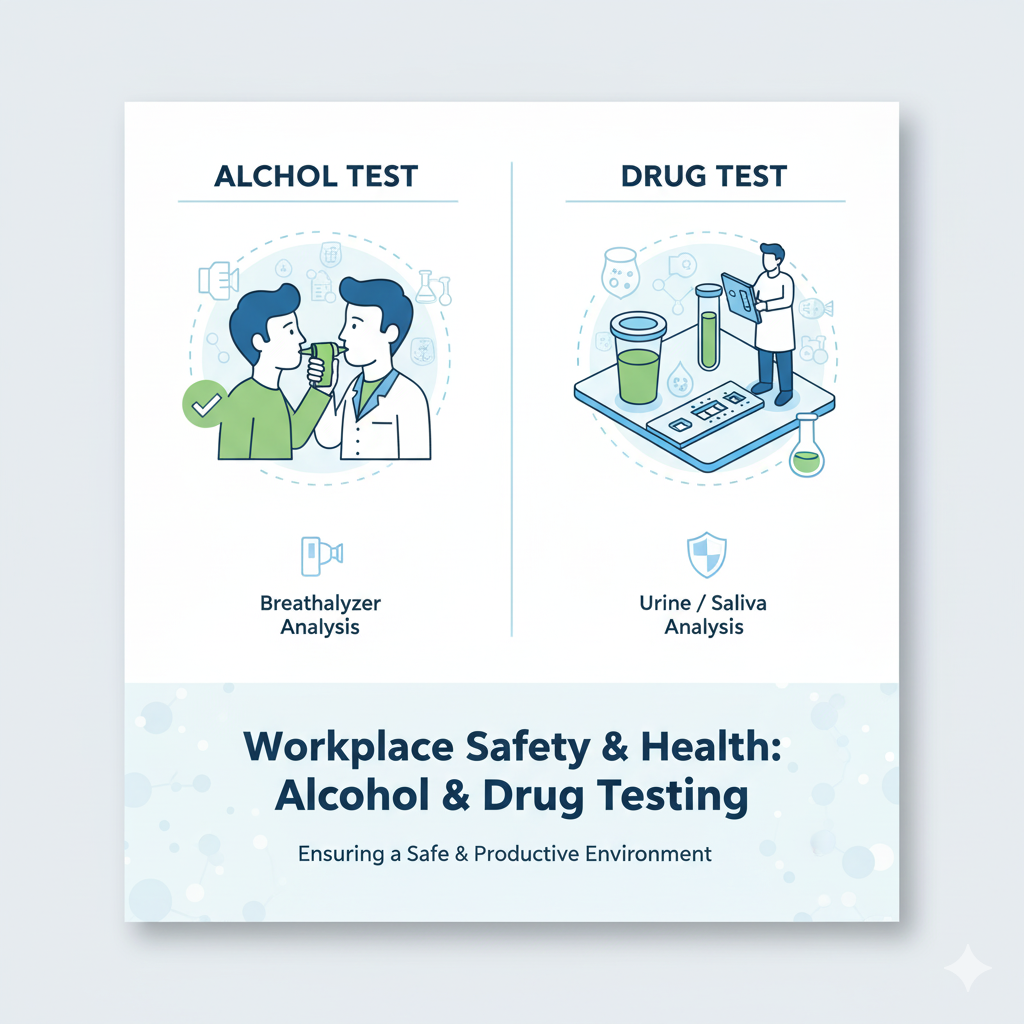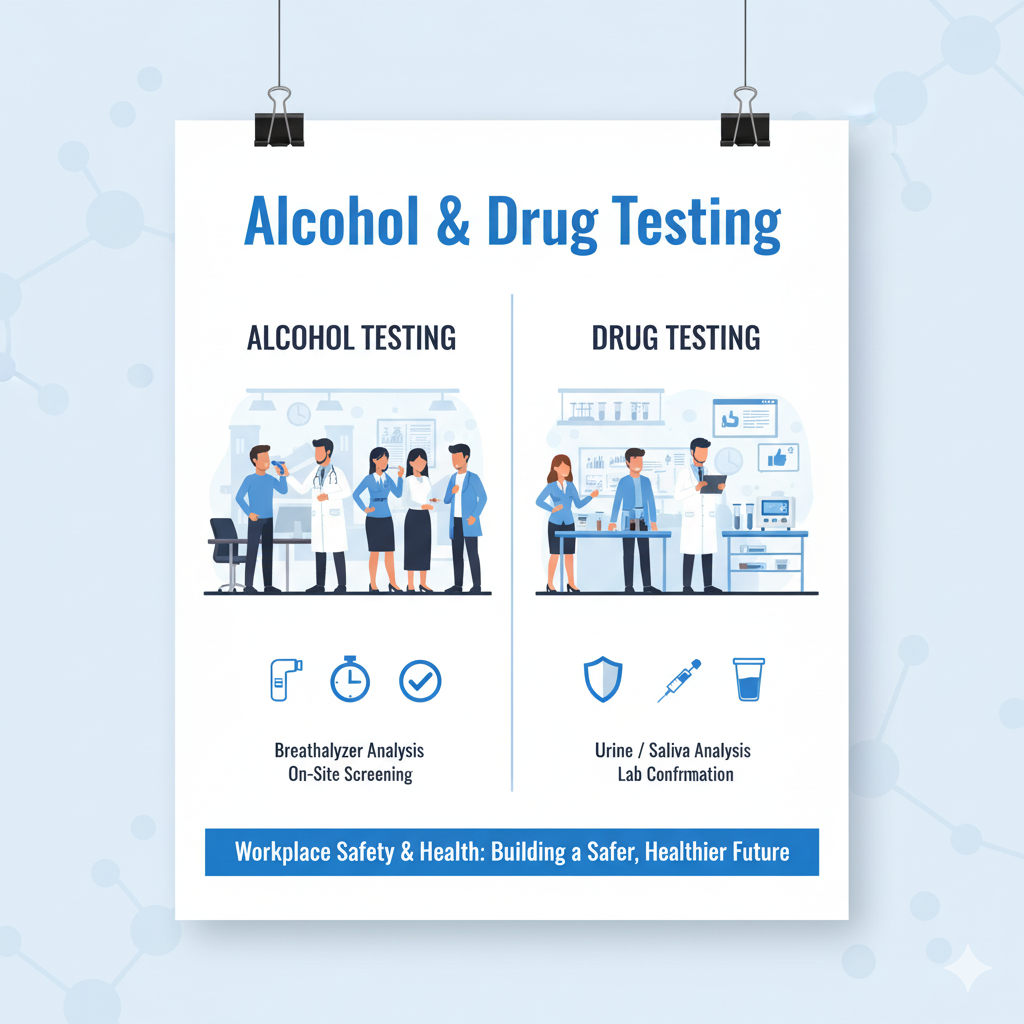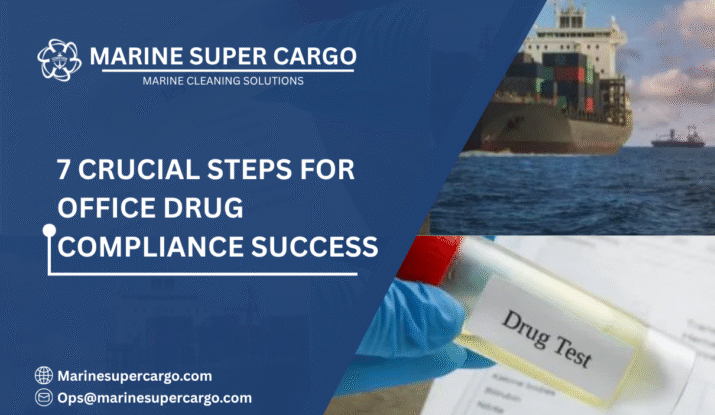Drug Testing Compliance for Office Employees
The workplace thrives on trust, safety, and accountability—but even one lapse can disrupt this balance. That’s where Office Drug Compliance plays a vital role. It ensures every employee is fit for duty, protects organizations from legal pitfalls, and fosters a culture of responsibility. Imagine it as the equivalent of routine safety checks for a vessel: small, regular measures that prevent large, costly disasters. By embracing structured compliance programs, companies not only avoid risks but also communicate integrity and care to employees, clients, and regulators alike. Let’s unpack how drug testing compliance works and why it’s essential for offices today.
Why Office Drug Compliance Matters
Corporations operate under intense scrutiny. A single drug-related incident can trigger financial penalties, lawsuits, or reputational loss. Office Drug Compliance ensures employees stay sober and ready, reducing the likelihood of accidents and inefficient work. Much like the International Maritime Organization (IMO) enforces global maritime safety to protect vessels and crew, compliance frameworks guide offices toward accountability. By implementing rigorous testing programs, organizations showcase a commitment to reliability and safety, proving to stakeholders that they are managed responsibly.
Crafting Clear Office Drug Policies
The first requirement for Office Drug Compliance is developing transparent policies. Confusing or vague guidelines cause resentment and resistance. Strong policies include:
- The types of substances tested
- When and how tests occur
- Steps taken after positive results
A clear rulebook prevents disputes while securing employee trust in the process. Just like the MARPOL Convention defines exact standards for pollution prevention at sea, corporate drug policies create a structured framework employees can follow with confidence.

Choosing the Right Testing Methods
Compliance isn’t one-size-fits-all. Urine, saliva, breath, and hair follicle tests each have their strengths and limitations. For example, saliva testing is popular in offices because it’s quick and non-invasive. When companies ignore proper methods, results may lack validity. Office Drug Compliance requires managers to choose scientifically accurate tools backed by certified labs. This choice reassures employees of fairness and gives regulators concrete proof of adherence to safety standards. Read also about Ensuring safer seas with 0 risks through cargo safety testing.
Balancing Random and Scheduled Testing
Predictability weakens credibility. That’s why scheduled testing alone isn’t enough for Office Drug Compliance. Employees may find ways to prepare. Random testing, on the other hand, creates fairness and prevents misuse. Think of it like surprise fire drills: disruptive, yes—but essential. Combining both methods ensures consistent monitoring without bias or loopholes, reinforcing compliance throughout your workforce. Transparency about the rationale helps employees accept these programs as protective instead of punitive.
Meeting Legal and Ethical Standards
Drug testing carries privacy and consent considerations. Mishandling these issues is both a compliance failure and an erosion of trust. Binding guidelines exist worldwide; for instance, frameworks by IMCA emphasize ethical safety practices in marine operations. Office Drug Compliance requires employers to prioritize confidentiality, proper consent, and professional handling of results. Aligning programs with both local and international rules ensures companies avoid lawsuits while maintaining credibility among stakeholders. Read also about the Importance of Drug Testing at Work.
Handling Positive Results Responsibly
Discovering impairment doesn’t mean eliminating employees. Mishandling results is a common compliance error that risks both morale and reputation. Office Drug Compliance requires a balance of accountability and care. Many organizations incorporate Employee Assistance Programs (EAPs) to guide staff toward counseling or rehabilitation. This approach demonstrates genuine concern for well-being while maintaining safety. Just like minor repairs prevent massive failures onboard vessels, early action strengthens the workforce while preserving company image. Learn more about Employee Alcohol Testing.
Investing in Technology for Accuracy
Modern challenges require modern solutions. Relying on outdated testing tools increases the risk of false positives or inconsistencies. Office Drug Compliance now leverages AI-driven randomization, advanced laboratory analysis, and biometric technologies. These tools increase accuracy and minimize claims of bias. Similar to eco-focused vessel cleaning innovations in the maritime industry, adopting modern drug testing technology enhances credibility and keeps offices prepared for evolving legal demands.
Continuous Monitoring and Improvement
Drug testing compliance is not “one and done.” Companies must review policies, test data, and regulatory updates to stay aligned. Neglecting audits is a core risk to Office Drug Compliance. Regular reviews prevent practices from becoming outdated while also reassuring regulators and clients that the company treats safety as an ongoing commitment. Much like regular hull inspections keep ships efficient, regular compliance evaluations keep offices strong, safe, and trusted.
✅ 4 Things to Check for Safety at Sea pic.twitter.com/dAxhJQ2i6U
— Marine Super Cargo (@Marinsupercargo) September 14, 2025
Marine Supercargo Expands Services: Drug & Alcohol Testing for Safer Seas
Marine Supercargo, best known for its global marine hull cleaning operations, has expanded into drug & alcohol testing services. This move addresses the need for human reliability alongside vessel efficiency.
For ship owners, operators, and managers, impaired crew poses risks ranging from delays to regulatory fines and even environmental hazards. With internal testing, Marine Supercargo helps organizations meet IMO and IMCA requirements while ensuring compliance with safety laws. Their services complement hull cleaning by addressing the human element of operational readiness. Together, these solutions protect lives, vessels, and reputations, delivering complete safety assurance for global maritime stakeholders.
Why Reputation Depends on Office Drug Compliance
Reputation is fragile, and one accident can undo years of trust. Office Drug Compliance not only prevents incidents—it demonstrates professionalism. By showing transparency and fairness, organizations reassure regulators, employees, and customers alike. Much like the IAPH framework promotes safe and sustainable port management, strong compliance programs confirm corporate responsibility. Companies that view compliance as reputation protection build long-lasting credibility in competitive markets.

Future Trends in Drug Compliance Programs
The future of Office Drug Compliance lies in integration with broader wellness frameworks. Expect to see AI-assisted random testing, wearable health monitors, and analytics platforms that track compliance holistically. Just as MARPOL shifts shipping practices toward sustainability, workplaces will focus on blending drug compliance with employee health, wellness, and mental fitness programs. Smart companies will move from simply detecting issues to actively preventing them with proactive support.
Conclusion
Office Drug Compliance is more than paperwork—it’s the anchor of workplace safety and reputation. First, strong compliance policies protect against accidents and inefficiency. Second, technology-driven methods prevent errors and strengthen credibility. Third, a compassionate approach blends accountability with employee care. Together, these measures create safe teams and stronger reputations. For corporates seeking sustainable, efficient, and future-ready compliance models, discover practical strategies at CleanShip.co.
FAQs:
Q1. Why is Office Drug Compliance important?
It safeguards employees, prevents safety incidents, and aligns the workplace with legal and international compliance standards.
Q2. How does random testing enhance compliance?
By creating unpredictability, random testing ensures fairness, discourages substance misuse, and strengthens organizational credibility.
Q3. What role does technology play in Office Drug Compliance?
Modern tools like AI selection and accurate lab testing eliminate errors and biases, ensuring reliable compliance results.
Q4. How is drug testing similar to vessel cleaning?
Both are preventive measures. Hull cleaning improves efficiency, while testing preserves workforce reliability. Together, they protect operations.
Q5. What future trends shape compliance programs?
Expect integration with wellness initiatives, real-time monitoring, and advanced data-driven systems that make compliance proactive.


